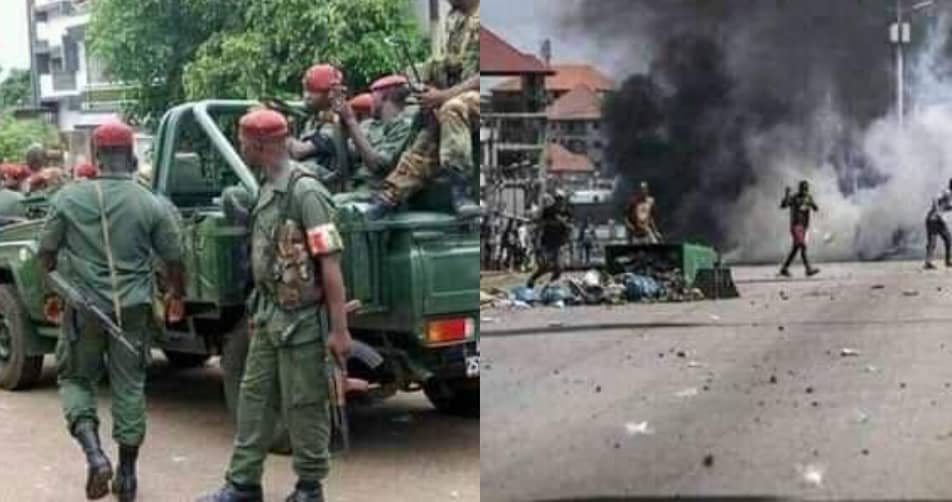During the early hours of January 6, 1999, insurgents belonging to the Revolutionary United Front (RUF) initiated an attack on the Sierra Leonean capital, Freetown, successfully capturing it from government forces as well as members of the Nigerian-led ECOMOG peacekeeping contingent, operating under the auspices of the Economic Community of West African States (ECOWAS) Cease-fire Monitoring Group.
The struggle for control over Freetown, and the subsequent occupation of the city by rebel forces for a period of three weeks, was marked by a systematic and widespread commission of various forms of atrocities against the civilian populace, consisting of over a million individuals. This period represented the most intense and concentrated episode of human rights abuses within Sierra Leone’s ongoing eight-year civil conflict.
As the insurgents proceeded to secure control over successive streets, they directed their aggression towards innocent civilians. By the close of January, reports indicated that an estimated number of thousands of non-combatants had perished. The rebels forcibly removed entire family units from their residences and subjected them to violence, including arson against residential structures.
After the devastating civil war in Sierra Leone that left a trail of destruction in its wake, a Truth and Reconciliation Commission was established to delve into the root causes of the conflict. The findings of the commission pointed to a multitude of factors that fueled the war, including deep-rooted tribal divisions, severe economic hardship, rampant corruption, and political marginalisation.
The recommendations put forth in the report were intended to serve as a roadmap for healing and national reconciliation, with the ultimate goal of preventing a recurrence of such a catastrophic event. However, recent events have revealed that many of the issues that led to the civil war continue to plague the nation, with impunity and disregard for democratic principles being exhibited by some of the very political actors tasked with upholding the peace.
As we pause to reflect on the tragic events that tore our nation apart, we must be resolute in our commitment to upholding democratic values and fostering unity among our people. Today serves as a solemn reminder of the sacrifices made by our fallen heroes and loved ones who paid the ultimate price in their homes, on the streets, and in the defense of their nation.
Let us take a moment to offer prayers for the souls of the departed, and to seek solace and divine intervention for a nation still grappling with the scars of war. May God grant us the strength and wisdom to honour the memory of those we have lost, and to build a future of peace and prosperity for all Sierra Leoneans.












May there soul continue to rest in peace
May God have mercy upon them, and may their souls rest in peace. But factors that fueled the past war, are still active within the people of Sierra Leone from the top to bottom of the society. So we all need to pray for for the leadership as well as the citizens for a change of their minds set. For all Sierra Leoneans must feel as one people protecting each other and the country as whole against those foreign looters. God bless Sierra Leone and God bless the true Sierra Leoneans that stand for the development of the land that we love Sierra Leone.
Amen
May the souls of the departed rest in perfect peace. We humbly pray that God will give this battered nation a God fearing team of leaders with unshakable love & compassion for the people and the country at heart. Leaders that will steer this Country away from decadence & retrogression; equiped with the required wisdom to inject what is right for a nation that is anxiously praying for improvement to their livelihoods. A nation that embodies love and harmony in the social milieu. May the good Lord hear and answer our prayers, AMEN.
Amen